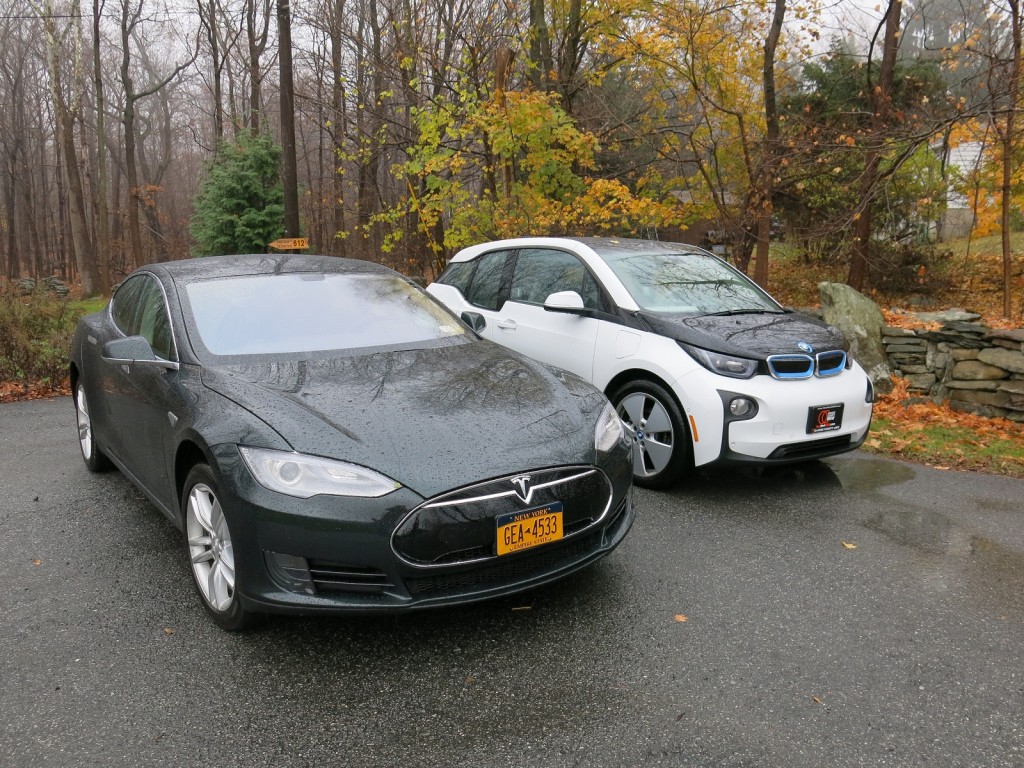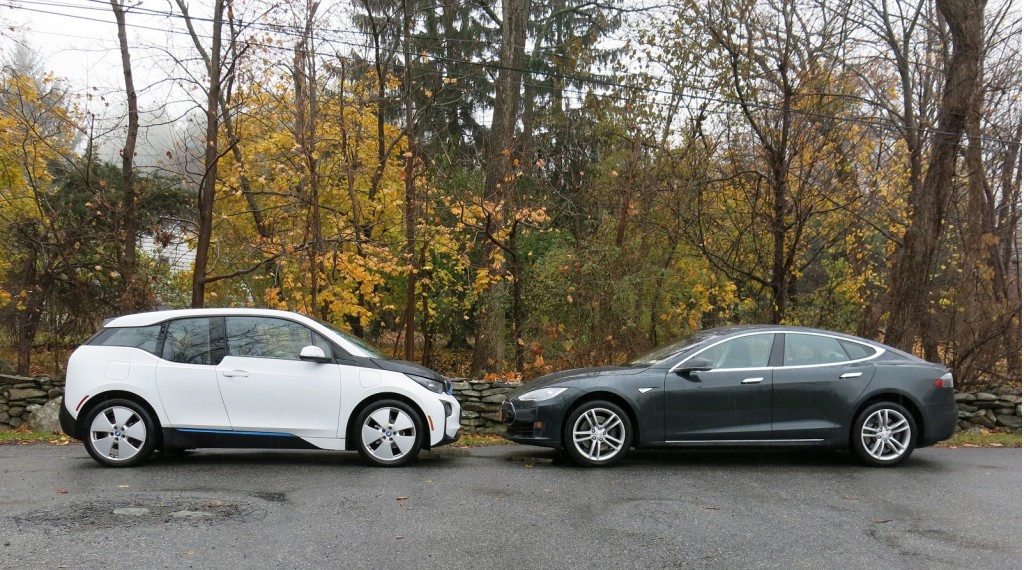They may both be luxury vehicles, but the BMW i3 and Tesla Model S electric cars are quite different.
The two models don't quite directly compete, but rather approach the market from different angles.
RELATED: How Audi, BMW & Mercedes Plan To Compete With Tesla--And Why
That doesn't mean the two makers won't compete head to head eventually, though.
In a post on The Electric BMW i3 blog, Tom Moloughney makes the argument that BMW and Tesla have each taken the approach that works best for them, and that they will ultimately "face off."

2013 Tesla Model S and 2014 BMW i3, Hudson Valley, NY, Nov 2014
So with the Model S it looked to tackle one of the biggest problems most people have with electric cars--short range--and build a car that was desirable enough to get the public to pay attention.
BMW, meanwhile, wanted an electric car that would fit into an existing lineup of internal-combustion models and fill a specific role not covered by them.
DON'T MISS: Audi Confirms Electric R8 e-Tron, Also 280-Mile Family Electric Car In 2017
The i3 isn't just an electric car; it was designed as much to be useful in large cities as to compete with other electric cars.
However, that doesn't mean BMW's and Tesla's paths won't converge eventually.
As electric cars become more mainstream, both carmakers will likely broaden their lineups, creating more opportunities for overlap.

2013 Tesla Model S and 2014 BMW i3, Hudson Valley, NY, Nov 2014
Tesla plans to launch the smaller and less-expensive Model 3 in 2017 or 2018, while BMW is rumored to be working on a larger electric car dubbed the i5.
Lessons learned from producing the i3 could be applied to the i5, and undoubtedly other electric BMWs in the future.
Using a small car as a testbed for new technology is exactly the opposite way things are typically done in the car industry, but it seems to be the norm with electric cars so far.
MORE: Were Small Cars Exactly The Wrong Way To Launch Electric Cars?
Yet Tesla's experience have shown that cramming more batteries into a chassis to increase range, and using an upscale model to mask the cost,, can be pretty effective.
The sheer success of the Model S alone has proven to be such a disruptive force that we'll likely see larger electric luxury cars from BMW and others in the near future.
_______________________________________________












